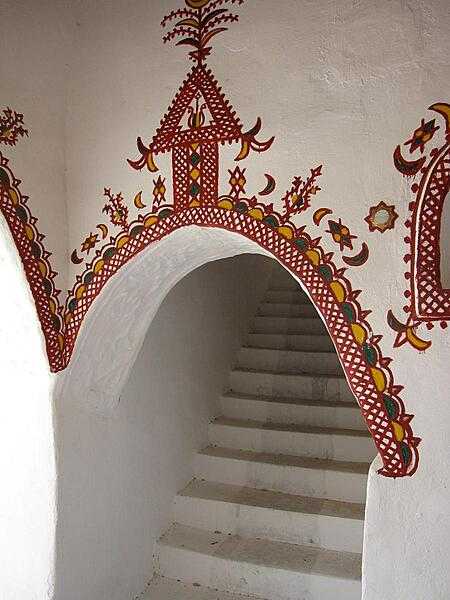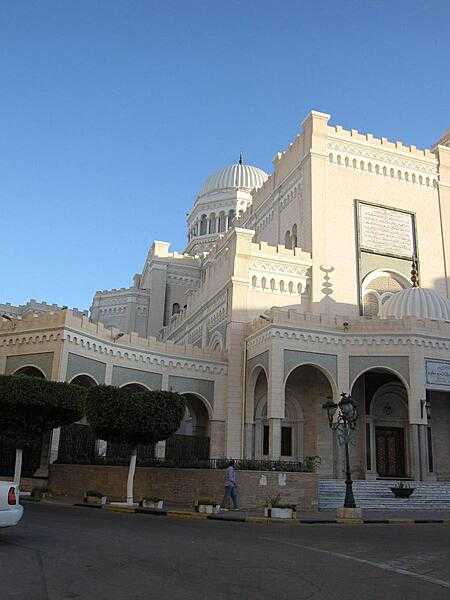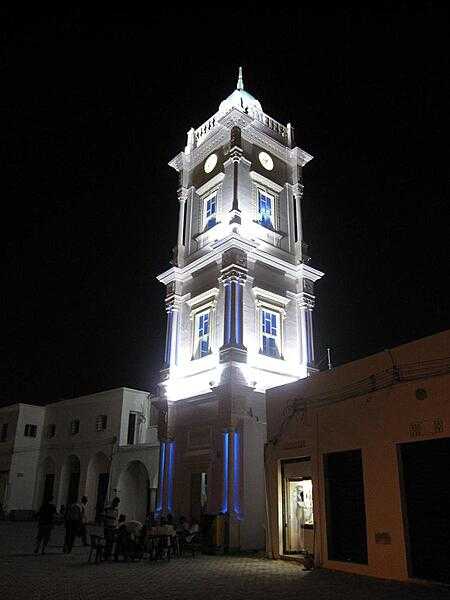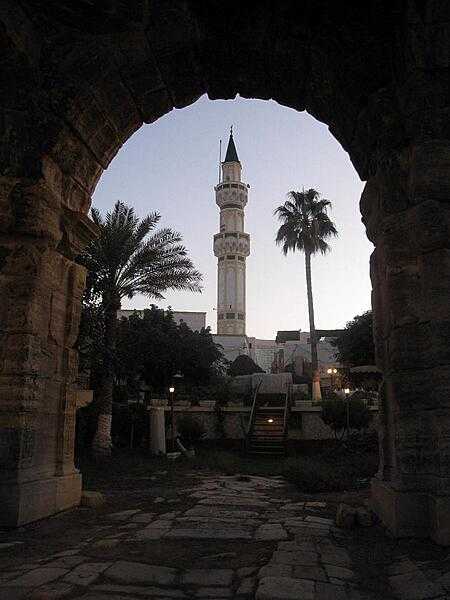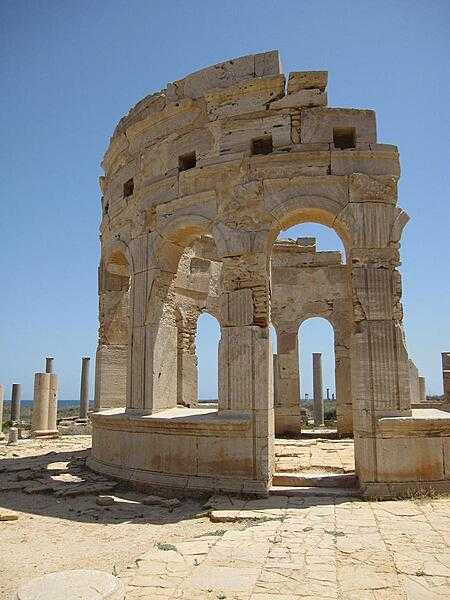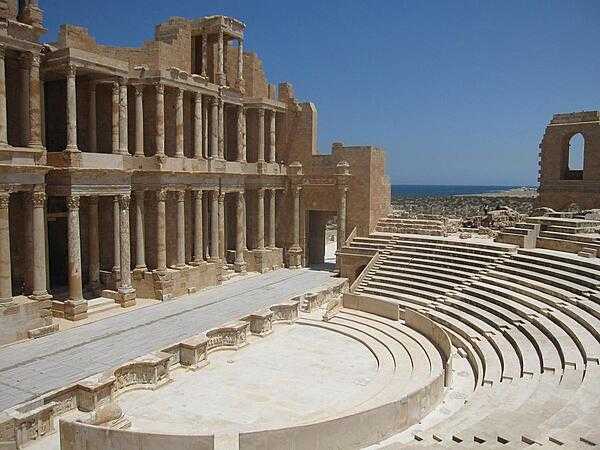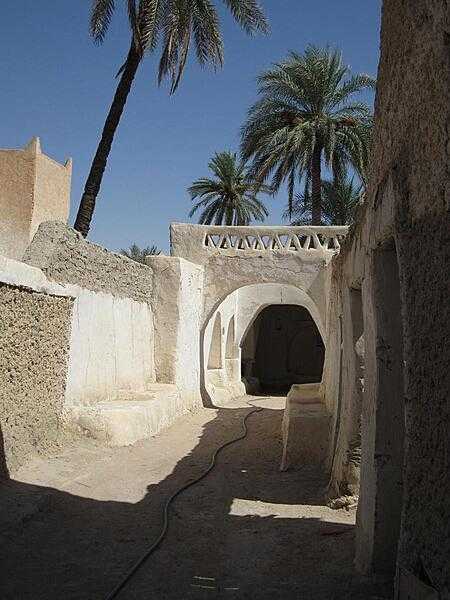Libya - LY - LBY - LBA - Africa
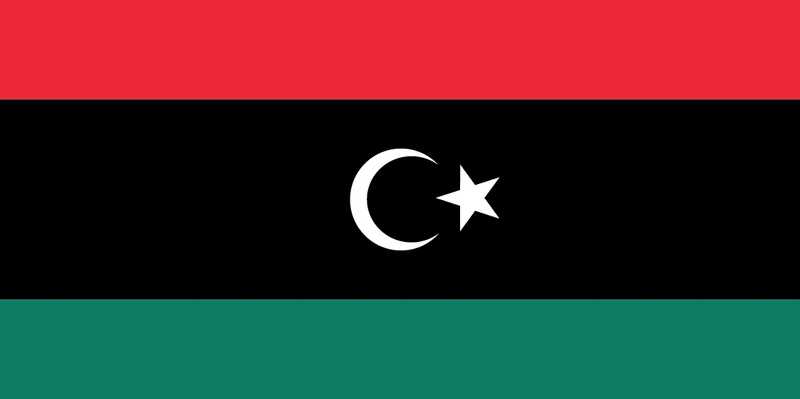
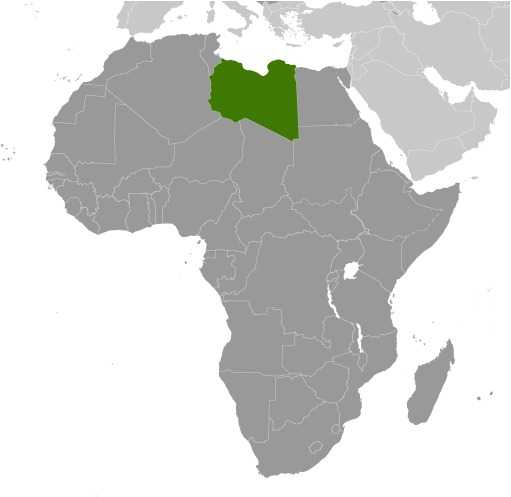
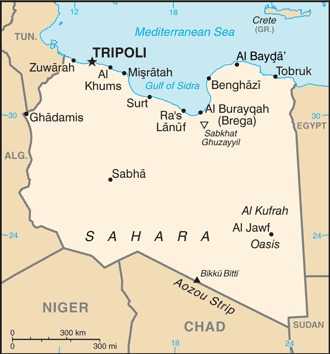
Libya Images
Libya Factbook Data
Diplomatic representation from the US
embassy: US Embassy Tripoli operations suspended in 2014
mailing address: 8850 Tripoli Place, Washington, DC 20521-8850
telephone: [216] 71-107-000
email address and website:
Webmaster_Libya@state.gov
https://ly.usembassy.gov/
note: the US Embassy in Tripoli closed in July 2014 due to Libyan civil unrest; embassy staff and operations currently are located at US Embassy Tunis, Tunisia
Age structure
15-64 years: 63.2% (male 2,385,152/female 2,263,780)
65 years and over: 4.6% (2024 est.) (male 151,125/female 184,471)
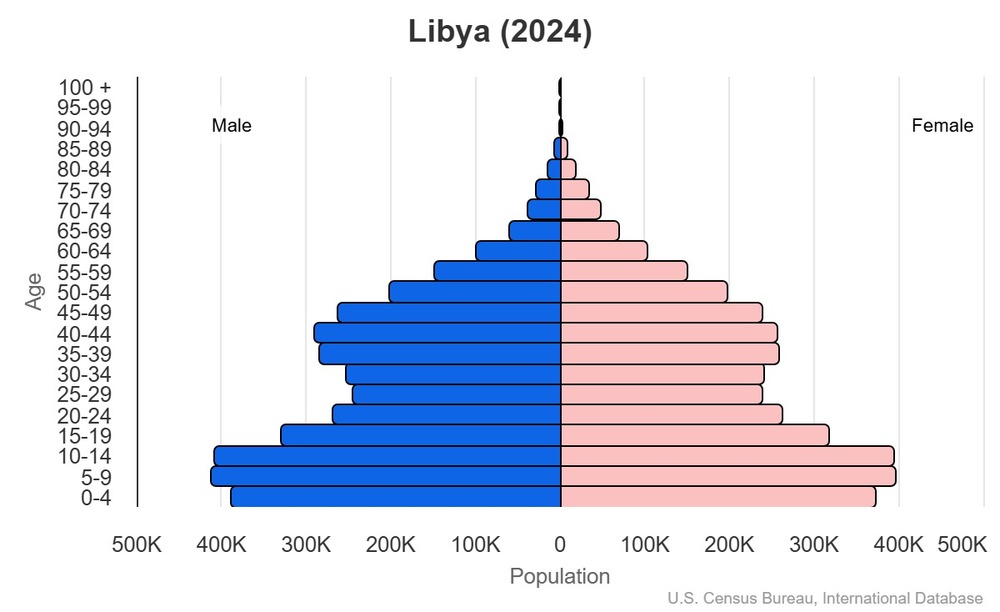
For additional information, please see the entry for Population pyramid on the Definitions and Notes page.
Geographic coordinates
Sex ratio
0-14 years: 1.04 male(s)/female
15-64 years: 1.05 male(s)/female
65 years and over: 0.82 male(s)/female
total population: 1.04 male(s)/female (2024 est.)
Natural hazards
Area - comparative
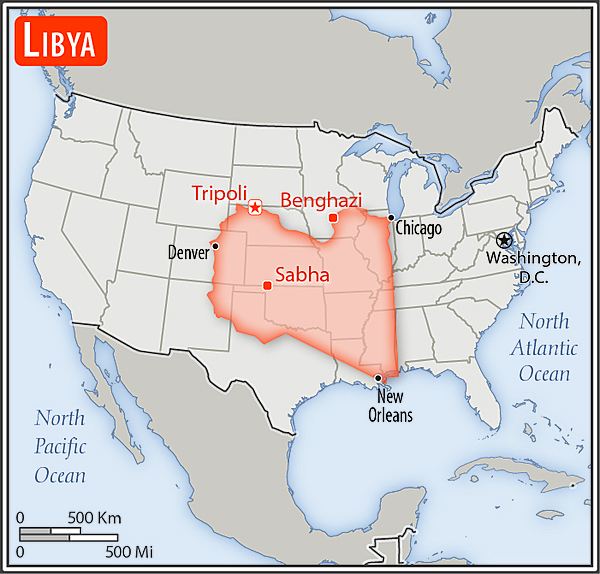
about 2.5 times the size of Texas; slightly larger than Alaska
Military service age and obligation
Background
Berbers have inhabited central north Africa since ancient times, but Phoenicians, Greeks, Carthaginians, Persians, Egyptians, Romans, and Vandals have all settled and ruled the region. In the 7th century, Islam spread through the area. In the mid-16th century, Ottoman rule began; the Italians supplanted the Ottoman Turks in the area around Tripoli in 1911 and held it until 1943, when they were defeated in World War II. Libya then came under UN administration and achieved independence in 1951. Col. Muammar al-QADHAFI assumed leadership with a military coup in 1969 and began to espouse a political system that combined socialism and Islam. During the 1970s, QADHAFI used oil revenues to promote his ideology outside Libya, supporting subversive and terrorist activities that included the downing of two airliners -- one over Scotland and another in Northern Africa -- and a discotheque bombing in Berlin. UN sanctions in 1992 isolated QADHAFI politically and economically; the sanctions were lifted in 2003 when Libya accepted responsibility for the bombings and agreed to claimant compensation. QADHAFI also agreed to end Libya's program to develop weapons of mass destruction, and he made significant strides in normalizing relations with Western nations.
Unrest that began in several Middle Eastern and North African countries in 2010 erupted in Libyan cities in 2011. QADHAFI's brutal crackdown on protesters spawned an eight-month civil war that saw the emergence of a National Transitional Council (NTC), UN authorization of air and naval intervention by the international community, and the toppling of the QADHAFI regime. In 2012, the NTC handed power to an elected parliament, the General National Congress (GNC), which was replaced two years later with the House of Representatives (HoR). In 2015, the UN brokered the Libyan Political Agreement (LPA) among a broad array of political parties and social groups, establishing an interim executive body. However, hardliners continued to oppose and hamper the LPA implementation, leaving Libya with eastern and western-based rival governments. In 2018, the international community supported a recalibrated plan that aimed to break the political deadlock with a National Conference in 2019. These plans, however, were derailed when the eastern-based, self-described Libyan National Army (LNA) launched an offensive to seize Tripoli. The LNA offensive collapsed in 2020, and a subsequent UN-sponsored cease-fire helped formalize the pause in fighting between rival camps.
In 2021, the UN-facilitated Libyan Political Dialogue Forum selected a new prime minister for an interim government -- the Government of National Unity (GNU) -- and a new presidential council charged with preparing for elections and uniting the country’s state institutions. The HoR approved the GNU and its cabinet the same year, providing Libya with its first unified government since 2014, but the parliament then postponed the planned presidential election to an undetermined date in the future. In 2022, the HoR voted to replace GNU interim Prime Minister, Abdul Hamid DUBAYBAH, with another government led by Fathi BASHAGHA. GNU allegations of an illegitimate HoR vote allowed DUBAYBAH to remain in office and rebuff BASHAGHA's attempts to seat his government in Tripoli. In 2023, the HoR voted to replace BASHAGHA with Osma HAMAD. Special Representative of the UN Security-General for Libya, Abdoulaye BATHILY, is leading international efforts to persuade key Libyan political actors to resolve the core issues impeding elections.
Environmental issues
International environmental agreements
signed, but not ratified: Climate Change-Paris Agreement, Law of the Sea
Exports - commodities
note: top five export commodities based on value in dollars
Exports - partners
note: top five export partners based on percentage share of exports
Administrative divisions
Agricultural products
note: top ten agricultural products based on tonnage
Military and security forces
note: the self-styled Libyan National Army (LNA; aka Libyan Arab Armed Forces, LAAF) under Khalifa HAFTER also includes various ground, air, and naval/coast guard forces comprised of semi-regular military personnel, militias, other armed groups, and foreign military contractors; some of the armed units nominally under the LNA operate under their own command structures and engage in their own operations
Budget
expenditures: $37.475 billion (2019 est.)
Capital
geographic coordinates: 32 53 N, 13 10 E
time difference: UTC+2 (7 hours ahead of Washington, DC, during Standard Time)
etymology: the name derives from the Greek words tri and polis, meaning "three cities;" the modern-day city was founded in the 14th century to replace the three ancient cities of Pallantium, Tegea, and Mantineia
Imports - commodities
note: top five import commodities based on value in dollars
Climate
Coastline
Constitution
note: a draft constitution was approved in 2017, but it is not yet ratified
Exchange rates
Exchange rates:
4.832 (2024 est.)
4.813 (2023 est.)
4.813 (2022 est.)
4.514 (2021 est.)
1.389 (2020 est.)
Executive branch
head of government: GNU Interim Prime Minister Abd-al-Hamid DUBAYBAH (since 5 February 2021)
election/appointment process: first direct presidential election was not held as planned
most recent election date: scheduled for 24 December 2021 but not held
expected date of next election: no new date has been set for elections
Flag
meaning: the colors represent the three major regions of the country: red stands for Fezzan, black for Cyrenaica, and green for Tripolitania; the crescent and star represent Islam
history: the National Transitional Council reintroduced this flag design from the former Kingdom of Libya (1951-69) in 2011 to replace the all-green banner of the QADHAFI regime
Independence
Industries
Judicial branch
Land boundaries
border countries (6): Algeria 989 km; Chad 1,050 km; Egypt 1,115 km; Niger 342 km; Sudan 382 km; Tunisia 461 km
Land use
arable land: 1% (2023 est.)
permanent crops: 0.2% (2023 est.)
permanent pasture: 7.6% (2023 est.)
forest: 0.1% (2023 est.)
other: 91.2% (2023 est.)
Legal system
Legislative branch
chamber name: House of Representatives (Majlis Al-Nuwaab)
number of seats: 200 (all directly elected)
electoral system: other systems
scope of elections: full renewal
most recent election date: 6/25/2014
percentage of women in chamber: 16.5%
expected date of next election: December 2026
note: 32 seats are reserved for women
Maritime claims
exclusive fishing zone: 62 nm
note: Gulf of Sidra closing line - 32 degrees, 30 minutes north
International organization participation
National holiday
Nationality
adjective: Libyan
Natural resources
Geography - note
note 2: the volcano Waw an Namus lies in south central Libya in the middle of the Sahara; the caldera is an oasis -- the name means "oasis of mosquitoes" -- containing several small lakes that host many species of insects and birds
Economic overview
Suffrage
Terrain
Government type
Country name
conventional short form: Libya
local long form: Dawlat Libiya
local short form: Libiya
etymology: the name probably derives from the Libu, a North African tribe first mentioned in texts from the 13th century B.C.; the ancient Greeks and Romans used the name for the entire North African coast west of Egypt
Location
Map references
Irrigated land
Diplomatic representation in the US
chancery: 1460 Dahlia Street NW, Washington, DC 20012
telephone: [1] (202) 944-9601
FAX: [1] (202) 944-9606
email address and website:
info@embassyoflibyadc.com
https://www.embassyoflibyadc.org/
Internet users
Internet country code
Refugees and internally displaced persons
IDPs: 139,305 (2024 est.)
GDP (official exchange rate)
note: data in current dollars at official exchange rate
Trafficking in persons
Total renewable water resources
Urbanization
rate of urbanization: 1.45% annual rate of change (2020-25 est.)
Broadcast media
Drinking water source
total: 99.9% of population (2022 est.)
unimproved:
total: 0.1% of population (2022 est.)
National anthem(s)
lyrics/music: Al Bashir AL AREBI/Mohamad Abdel WAHAB
history: adopted 1951, but replaced in 1969 when QADHAFI came to power; readopted 2011 with some modification to the lyrics; also known as "Ya Beladi" (O My Country)
Major urban areas - population
International law organization participation
Physician density
Hospital bed density
National symbol(s)
GDP - composition, by end use
government consumption: 36.7% (2024 est.)
investment in fixed capital: 14.8% (2024 est.)
investment in inventories: 0% (2024 est.)
exports of goods and services: 74.8% (2024 est.)
imports of goods and services: -59.1% (2024 est.)
note: figures may not total 100% due to rounding or gaps in data collection
Citizenship
citizenship by descent only: at least one parent or grandparent must be a citizen of Libya
dual citizenship recognized: no
residency requirement for naturalization: varies from 3 to 5 years
Population distribution
Electricity access
electrification - urban areas: 100%
Civil aircraft registration country code prefix
Sanitation facility access
total: 99.3% of population (2022 est.)
unimproved:
total: 0.7% of population (2022 est.)
Ethnic groups
Religions
note: non-Sunni Muslims include native Ibadhi Muslims (<1% of the population) and foreign Muslims
Languages
major-language sample(s):
كتاب حقائق العالم، المصدر الذي لا يمكن الاستغناء عنه للمعلومات الأساسية (Arabic)
The World Factbook, the indispensable source for basic information.
Imports - partners
note: top five import partners based on percentage share of imports
Elevation
lowest point: Sabkhat Ghuzayyil -47 m
mean elevation: 423 m
Health expenditure
Military expenditures
Military - note
Military and security service personnel strengths
Military equipment inventories and acquisitions
note: Libya is under a UN-imposed arms embargo
Terrorist group(s)
note: details about the history, aims, leadership, organization, areas of operation, tactics, targets, weapons, size, and sources of support of the group(s) appear(s) in the Terrorism reference guide
Total water withdrawal
industrial: 280 million cubic meters (2022 est.)
agricultural: 4.85 billion cubic meters (2022 est.)
Waste and recycling
Major aquifers
Major watersheds (area sq km)
National heritage
selected World Heritage Site locales: Archaeological Site of Cyrene; Archaeological Site of Leptis Magna, Archaeological Site of Sabratha; Rock-Art Sites of Tadrart Acacus; Old Town of Ghadamès
Coal
Electricity generation sources
Natural gas
consumption: 8.633 billion cubic meters (2023 est.)
exports: 2.527 billion cubic meters (2023 est.)
proven reserves: 1.505 trillion cubic meters (2021 est.)
Petroleum
refined petroleum consumption: 207,000 bbl/day (2023 est.)
crude oil estimated reserves: 48.363 billion barrels (2021 est.)
Gross reproduction rate
Remittances
0% of GDP (2022 est.)
0% of GDP (2021 est.)
note: personal transfers and compensation between resident and non-resident individuals/households/entities
Ports
large: 0
medium: 2
small: 3
very small: 9
ports with oil terminals: 10
key ports: Al Burayqah, Az Zawiya, Banghazi, Mersa Tobruq, Mina Tarabulus (Tripoli)
National color(s)
Particulate matter emissions
Methane emissions
agriculture: 63.4 kt (2019-2021 est.)
waste: 77.3 kt (2019-2021 est.)
other: 3.6 kt (2019-2021 est.)
Labor force
note: number of people ages 15 or older who are employed or seeking work
Youth unemployment rate (ages 15-24)
male: 41.5% (2024 est.)
female: 68.8% (2024 est.)
note: % of labor force ages 15-24 seeking employment
Net migration rate
Median age
male: 26.3 years
female: 26.2 years
Maternal mortality ratio
Reserves of foreign exchange and gold
$92.427 billion (2023 est.)
$86.683 billion (2022 est.)
note: holdings of gold (year-end prices)/foreign exchange/special drawing rights in current dollars
Total fertility rate
Unemployment rate
18.8% (2023 est.)
19.3% (2022 est.)
note: % of labor force seeking employment
Carbon dioxide emissions
from coal and metallurgical coke: 700 metric tonnes of CO2 (2023 est.)
from petroleum and other liquids: 29.542 million metric tonnes of CO2 (2023 est.)
from consumed natural gas: 16.936 million metric tonnes of CO2 (2023 est.)
Area
land: 1,759,540 sq km
water: 0 sq km
Real GDP (purchasing power parity)
$91.161 billion (2023 est.)
$82.756 billion (2022 est.)
note: data in 2021 dollars
Airports
Infant mortality rate
male: 12.1 deaths/1,000 live births
female: 9.3 deaths/1,000 live births
Inflation rate (consumer prices)
2.4% (2023 est.)
4.5% (2022 est.)
note: annual % change based on consumer prices
Current account balance
$9.607 billion (2022 est.)
$5.675 billion (2021 est.)
note: balance of payments - net trade and primary/secondary income in current dollars
Real GDP per capita
$12,500 (2023 est.)
$11,500 (2022 est.)
note: data in 2021 dollars
Broadband - fixed subscriptions
subscriptions per 100 inhabitants: 5 (2022 est.)
Obesity - adult prevalence rate
Energy consumption per capita
Death rate
Birth rate
Electricity
consumption: 28.826 billion kWh (2023 est.)
imports: 800 million kWh (2023 est.)
transmission/distribution losses: 7.081 billion kWh (2023 est.)
Merchant marine
by type: general cargo 2, oil tanker 13, other 81
Children under the age of 5 years underweight
Imports
$27.872 billion (2022 est.)
$25.406 billion (2021 est.)
note: balance of payments - imports of goods and services in current dollars
Exports
$39.831 billion (2022 est.)
$32.38 billion (2021 est.)
note: balance of payments - exports of goods and services in current dollars
Alcohol consumption per capita
beer: 0 liters of pure alcohol (2019 est.)
wine: 0.01 liters of pure alcohol (2019 est.)
spirits: 0 liters of pure alcohol (2019 est.)
other alcohols: 0 liters of pure alcohol (2019 est.)
Life expectancy at birth
male: 75.5 years
female: 80 years
Real GDP growth rate
10.2% (2023 est.)
-8.3% (2022 est.)
note: annual GDP % growth based on constant local currency
Industrial production growth rate
note: annual % change in industrial value added based on constant local currency
GDP - composition, by sector of origin
industry: 68.3% (2024 est.)
services: 34.3% (2024 est.)
note: figures may not total 100% due to non-allocated consumption not captured in sector-reported data
Population growth rate
Telephones - mobile cellular
subscriptions per 100 inhabitants: 193 (2022 est.)
Dependency ratios
youth dependency ratio: 49.8 (2025 est.)
elderly dependency ratio: 7.5 (2025 est.)
potential support ratio: 13.4 (2025 est.)
Population
male: 3,792,617
female: 3,671,800
note: immigrants make up just over 12% of the total population, according to UN data (2019)
Telephones - fixed lines
subscriptions per 100 inhabitants: 17 (2022 est.)
